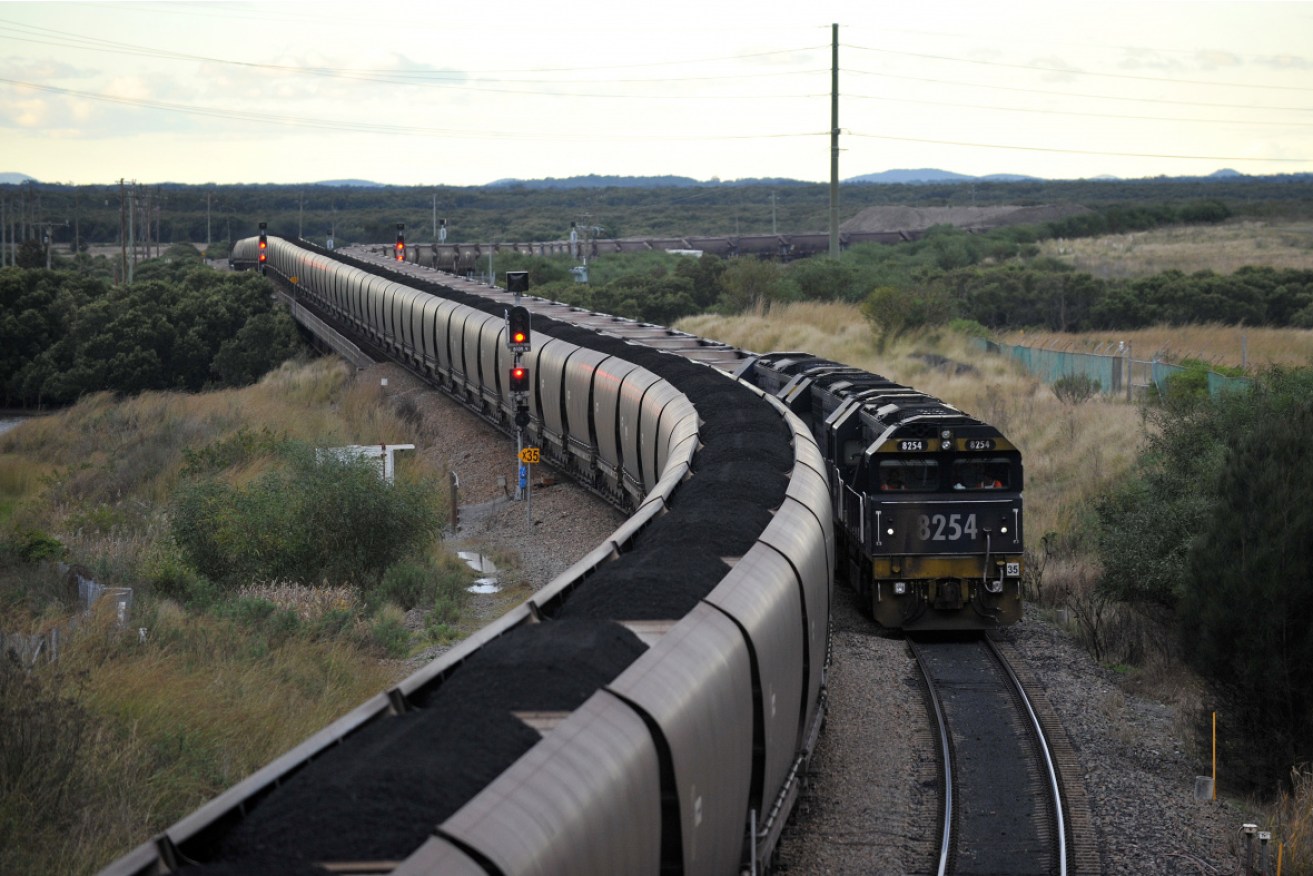Australia strikes another trade surplus


Strong prices for coal exports helped drive Australia's Sept quarter trade surplus to a record high Photo: AAP
Australia’s international trade surplus struck another record in the September quarter, one of few positives at a time when half the population was in lockdown which likely resulted in the economy contracting.
The Australian Bureau of Statistics said the current account surplus was a record $23.9 billion in the September quarter with the balance of goods and services contributing one percentage point to economic activity.
ABS head of international statistics Andrew Tomadini said the surplus was driven by strong prices for exports of coal and other mineral fuels as well as greater volumes of agricultural exports.
“Import volumes fell this quarter as global supply chain pressures began to be felt in Australia,” he said.
The data feeds into Wednesday’s national accounts for the September quarter, which is expected to show a 2.5 per cent contraction, which would be the second-largest on record.
More up-to-date figures showed building approvals tumbled 12.9 per cent in October as a result of a 37.5 per cent slump in dwellings excluding houses.
Approvals of private sector houses rose 4.3 per cent.
Separately, the Reserve Bank of Australia data shows demand for home loans remains strong with owner-occupier’s housing credit growing by a further 0.7 per cent in October to an annual rate of nine per cent, the fastest pace since August 2016.
Meanwhile, the ANZ-Roy Morgan consumer confidence index fell 1.3 per cent in the past week, while inflation expectations rose by 0.2 percentage points to 4.8 per cent and closed in on a recent seven-year high of five per cent.
“News of Omicron likely impacted sentiment, with some new restrictions for international travellers being quickly imposed,” ANZ head of Australian economics David Plank said.
The downturn in confidence coincides with a separate survey showing the cost of living pressures is starting to bite with more than half of Australians experiencing some sort of financial stress.
The survey of 3000 Australians by data analytics platform Your Financial Wellness found many would struggle in a financial crisis.
Mortgage stress — is defined by more than 30 per cent of income is required to repay a mortgage — is expected to lift from 27 per cent to 42 per cent of respondents if interest rates were to rise by two per cent.
“Our latest analysis suggests that the issue of the cost of living will be front and centre next year,” YFW chief executive Alex Hassall said.
Separate research also found businesses are facing difficulty keeping staff.
The survey by financial services firm Findex of more than 500 small and medium-sized enterprises found over half of the firms are concerned about their ability to retain staff over the next 12 months.
At the same time, a third have noticed a drop in staff satisfaction this year.
Despite the popularity of working from home during the pandemic, almost two-thirds of businesses want their staff back in the office for most of the working week.
However, over half have not even consulted the staff of their preferred working arrangements.
“In an environment of skill shortages, immigration restrictions and greater talent mobility, hiring is becoming increasingly challenging,” Findex chief people officer Jane Betts says.
“Businesses should be looking to do everything in their power to retain their current workforce.”
– AAP








